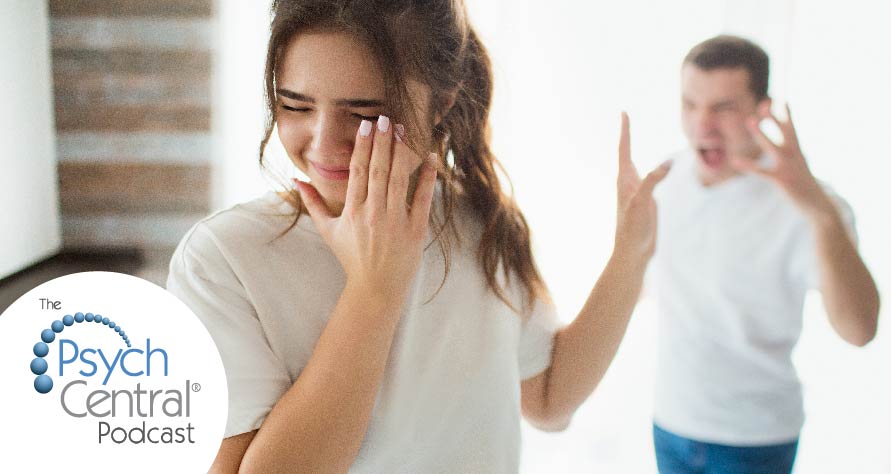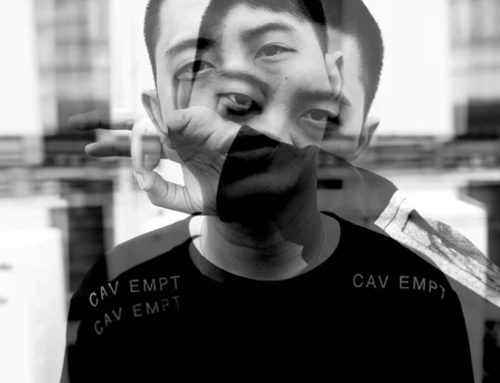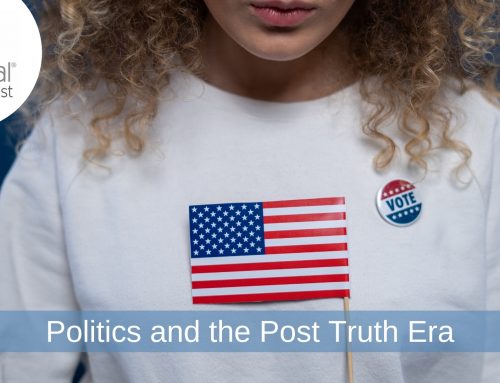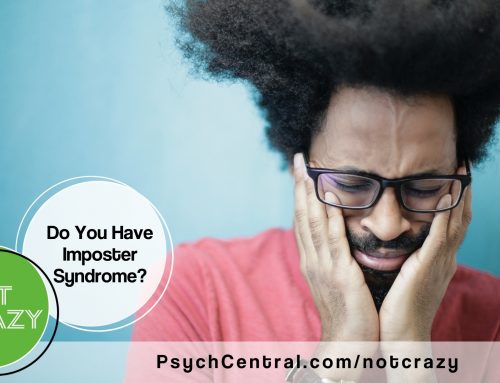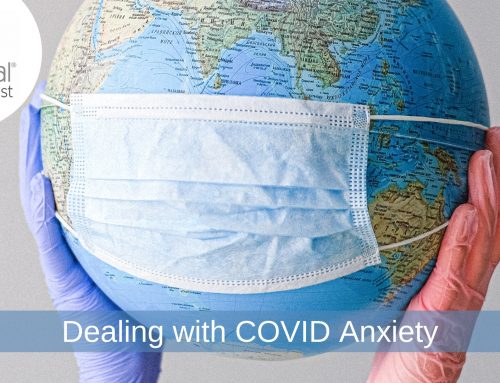Young love isn’t always innocent puppy love. Just like adult relationships, sometimes these young partnerships can become emotionally abusive or violent. What are some signs of teen dating violence? And how can family and friends help? Click on the player below to listen now!
SUBSCRIBE & REVIEW
Guest information for ‘Relationship Abuse’ Podcast Episode
 Joelle Shipp MA, LPC earned her Master of Arts in Clinical Mental Health Counseling from Appalachian State University in Boone, NC with a concentration in Marriage and Family Counseling. She received a Bachelor of Arts in Psychology from Winthrop University in Rock Hill, SC. She is a Licensed Clinical Mental Health Counselor (LCMHC) in the state of North Carolina and is certified by the National Board of Certified Counselors. Joelle knows that different seasons of life bring different challenges. She became a therapist in order to support people through those challenges, recognizing that it is helpful to have support during these seasons. Joelle works with people to identify issues, process harmful thought patterns and develop healthy skills in order to gain freedom and build confidence. Joelle prioritizes creating a safe, validating and encouraging space for clients. As a woman of color, she hopes that her identity encourages individuals who historically may not seek mental health services to take a leap of faith toward improving their mental health. She knows it is important that everyone is able to access mental health care so that they can be their best versions of themselves and she deeply loves being able to watch people build up the courage to truly care for themselves.
Joelle Shipp MA, LPC earned her Master of Arts in Clinical Mental Health Counseling from Appalachian State University in Boone, NC with a concentration in Marriage and Family Counseling. She received a Bachelor of Arts in Psychology from Winthrop University in Rock Hill, SC. She is a Licensed Clinical Mental Health Counselor (LCMHC) in the state of North Carolina and is certified by the National Board of Certified Counselors. Joelle knows that different seasons of life bring different challenges. She became a therapist in order to support people through those challenges, recognizing that it is helpful to have support during these seasons. Joelle works with people to identify issues, process harmful thought patterns and develop healthy skills in order to gain freedom and build confidence. Joelle prioritizes creating a safe, validating and encouraging space for clients. As a woman of color, she hopes that her identity encourages individuals who historically may not seek mental health services to take a leap of faith toward improving their mental health. She knows it is important that everyone is able to access mental health care so that they can be their best versions of themselves and she deeply loves being able to watch people build up the courage to truly care for themselves.
Computer Generated Transcript for ‘Relationship Abuse’ Episode
Editor’s Note: Please be mindful that this transcript has been computer generated and therefore may contain inaccuracies and grammar errors. Thank you.
Announcer: You’re listening to the Psych Central Podcast, where guest experts in the field of psychology and mental health share thought-provoking information using plain, everyday language. Here’s your host, Gabe Howard.
Gabe Howard: Welcome to this week’s episode of the Psych Central podcast. Calling into the show today we have Joelle Shipp MA, LCMH. Joelle works with people to identify issues, process harmful thought patterns and develop healthy skills in order to gain freedom and build confidence. As a woman of color, she hopes that her identity encourages individuals who historically may not seek mental health services to take a leap of faith toward improving their mental health. Joelle, welcome to the show.
Joelle Shipp MA, LPC: Thank you so much for having me. I’m really happy to be here.
Gabe Howard: Well, thank you so much, Joelle. I’m very excited to have you. And today we’re going to discuss teen dating violence. Now, why specifically are we focusing on teen dating violence rather than just dating violence or adult dating violence?
Joelle Shipp MA, LPC: Dating violence can occur in adults as well, but oftentimes our relationships tend to form in our teenage years. So whether that’s friendship or whether that’s romantic relationships.
Gabe Howard: What exactly is the definition of teen dating violence?
Joelle Shipp MA, LPC: So teen dating violence can be any form of violence that takes place in a dating relationship. That can include verbal abuse, emotional abuse, physical abuse or sexual abuse.
Gabe Howard: In my mind, when I first heard you say teen dating violence, I’m immediately thinking physical violence, you know, somebody was punched, pushed. There was some physical contact with the other person. But in your definition, you talked about like emotional violence. Can you sort of separate those out of why that’s an issue? Because, myself included, the way that I was raised, I get kind of a sticks and stones may break your bones kind of feeling. And I know that’s not accurate.
Joelle Shipp MA, LPC: Yeah, so when you ask about that, some examples can be name calling or someone being made fun of or feeling stupid or worthless, and it can also look like manipulation, too. And so oftentimes, like you said, we think of violence and we think physical, but that can be in a mental and emotional way as well.
Gabe Howard: How big of a problem is teen dating violence?
Joelle Shipp MA, LPC: Dating violence actually affects millions of teens each year. There’s been studies that show that at least 43% of dating college women report experiencing some type of violence in their relationships. And then when we even think about the LGBTQ community that more than 40% have actually reported being in an abusive relationship.
Gabe Howard: There can be a bad relationship, a negative relationship, a relationship that’s not good, that’s not abusive, right? Because trying to think about like my own development, you know, when I was in high school, I was in “bad relationships.” And I’m making air quotes because they weren’t abusive. We didn’t call each other names. There was no manipulation. But when we broke up, my parents were like, oh, thank God you did not bring out the best in each other. And I didn’t really understand that until I became an adult. I guess I’m trying to tease out the difference between an abusive relationship and a bad relationship.
Joelle Shipp MA, LPC: So bad relationships, kind of like you were sharing, is that they don’t bring out the best in us sometimes, maybe our moods may change, our behaviors may change. How we decide to start treating others may change. But when we start seeing abusive relationships that definitely tends to take an emotional impact on us, it can affect our self-esteem, it can affect our moods, whether we may start to experience like depression or some anxiety whenever we’re in abusive relationships, we may avoid doing some of the things that we used to enjoy because we may fear that, oh, my partner is going to say something or they might start to feel like they have some control over us to where we’re not able to live our lives in a normal and healthy way.
Gabe Howard: I’m curious as to why somebody would want to abuse their partner, because it just seems so, it just doesn’t seem like something that somebody would want to do. But we know that it happens. And as you said, it’s somewhat common.
Joelle Shipp MA, LPC: Oftentimes, whenever we’re talking about a partner being abusive, often they’re trying to gain some power and control over a person, they may feel out of control in other areas of their life. And so to gain some of that control, they may start to attempt that in their relationships. Also, times poor or unhealthy relationships have been modeled. So maybe say you have an individual who saw their parents fight or maybe they had a parent that was dating a lot of people who are maybe abusive in an emotional way or a physical way. And they may start to think that that’s OK.
Gabe Howard: When I think about any type of dating violence, whether it’s teen dating violence or adult dating violence, I always think that the male is the aggressor, that they’re the problem. But we know that females can contribute to dating violence as well. Is that true?
Joelle Shipp MA, LPC: Yes, that is very true. So a lot of times in our society, we see the male, the masculine, as maybe the aggressor, the person that is doing the abuse in these relationships. But we also do know that women can be not only emotionally abusive, but also verbally and physically abusive in relationships as well. And then when we also consider relationships that are non heterosexual, that individual, regardless of how they identify, can also be the abusive partner.
Gabe Howard: Thank you so much, Joelle. Let’s talk about when somebody leaves an abusive relationship, does the abuse immediately end because the relationship has been severed?
Joelle Shipp MA, LPC: Definitely not. Sometimes, and I always think it’s great whenever that person decides that they do not want to be a part of this relationship that’s causing them stress, anxiety, depression, the aggressor can continue to reach out to that person. They may even start to make threats of, if you leave me, I will do this. And so what’s always really important is to make sure that you have that safety support around you. So whether that’s friends or family, and sometimes that even means getting law enforcement involved just to make sure that you’re in a safe situation to leave that environment. You always want to make sure that you have the resources to keep yourself safe.
Gabe Howard: One of the interesting things that you said there is that we should rely on our friends and family if we’re trying to get out of an abusive relationship. What advice do you have for friends and family who are trying to help their loved ones who may be in an abusive relationship?
Joelle Shipp MA, LPC: When we consider abusive relationships, oftentimes people will try to leave those relationships more than once, and you’re the person who’s on the outside looking in and so you see that it’s an unhealthy relationship. You want your loved one to get out. And so I would just share patience is really key, obviously always expressing concern, but making sure that you recognize that that person may say they want to leave, may even attempt to once or twice or three times. But just making sure that you’re able to be present and maybe taking that space to allow them to make the decision for themselves, but also to try to be there for them whenever they do build up that confidence and that courage to get out for good.
Gabe Howard: Along the same lines, what are some signs that a teen might be experiencing dating violence?
Joelle Shipp MA, LPC: One of the big things is that you might see some behavior or mood changes that could look like lying, stealing or maybe even isolating themselves from people or activities they used to like to do, they might start to experience anxiety about being around their partner for fear of they might say something wrong or they might do something wrong or they might look at somebody and it may imply something that they don’t mean. Another sign to look out for is even some substance use. So if your teen starts to use alcohol or drugs, oftentimes that can be a numbing from the pain that they’re experiencing or maybe even a distraction from the abuse. And then one big thing is that they may start to express some suicidal ideation or homicidal ideation, whether that’s thoughts or feelings of not wanting to be there because they feel like I just want to escape, I want to avoid this pain from this abusive relationship, or they may start to get feelings of hatred or anger towards their partner and have thoughts of wanting to harm them.
Gabe Howard: How does a teenager keep safe in a dating relationship? What signs should they look out for?
Joelle Shipp MA, LPC: The one thing that’s really important for anyone when you’re getting into a relationship is it’s really important to know who you are as an individual, your likes, your interests, know your values, and then also making sure that you’re creating positive self-esteem for yourself so that you’re able to know when someone is treating you in a way that you don’t want to be treated. I would hope that a lot of us have a good idea of I want to be treated with respect or kindness, I don’t want anyone to talk negative about me or say words that make me feel bad about myself. And whenever you’ve got that confidence in you, you’re less likely to allow other people to say those things to you. I think it’s also helpful to make sure that to foster open communication with your partner and so setting healthy rules and expectations within your relationship and also understanding not only your boundaries, but their boundaries as well, and then also making sure that you have trusted friends or family members and that you can discuss potential concerns with. It’s always helpful to be able to have someone that you trust. If you have a concern and you’re like, you know, I’m not sure about this, or they may be said that, what do you think? Just to kind of get some feedback on concerns you may have within your relationship?
Gabe Howard: I like that, I like that a lot and to sort of change gears just a little bit, I think that maybe a lot of teenagers don’t understand what components make a healthy relationship. I mean, we’re young at that age, we’re new, we’re experiencing things. And I think that maybe, I think that maybe there’s a lot of teenagers that don’t understand that this is unhealthy. And I know that there’s three important components that make up a healthy relationship. Can you talk about those for a moment?
Joelle Shipp MA, LPC: Yes, one is communication, it’s always important to have a safe space to communicate your thoughts and feelings in a healthy way, and whenever you’re doing it in a healthy way, you don’t have any fear that you’ll be harmed in a physical, verbal or emotional way. Another thing that’s also important is being able to have respect not only for yourself, but for the other person. And so a lot of times in relationships, you know, there’s these common things that we have to like everything. We have to fit in like two peas in a pod. But oftentimes we have very different views and opinions about certain things. And it’s not always necessary to agree on everything, but it’s important to compromise in some situations or be able to respect those differences. And then the last one that I would share is making sure that you have care for that person. And so knowing that that person cares for you, that they have no intentions of harming you in any way. And a lot of times that this is shown not only by their words, but by their actions, because we can say a lot of talk, but our actions prove our true intentions for other people.
Gabe Howard: Specifically speaking about teens, and I know this is kind of a difficult question to answer, because, of course, you can’t be in the mind of every teenager, but why do you think that teenagers end up in abusive or violent relationships?
Joelle Shipp MA, LPC: I think that teens can often end up in these relationships, one, because they’re still trying to learn and understand themselves. It’s important to be able to communicate your likes and interest, but also those concerns as well. And sometimes teens may not know the words or know the best way to navigate those conversations, because sometimes we have this fear of, oh, they might not like me or they may judge me or they may think I’m weird. And so being able to confide in a trusted adult, to be able to express your concerns and maybe help them allow them to help you navigate how to how to have those conversations in a healthy way.
Gabe Howard: We’ll be right back after these messages from our sponsors.
Sponsor Message: This episode is sponsored by BetterHelp.com. Secure, convenient, and affordable online counseling. Our counselors are licensed, accredited professionals. Anything you share is confidential. Schedule secure video or phone sessions, plus chat and text with your therapist whenever you feel it’s needed. A month of online therapy often costs less than a single traditional face to face session. Go to BetterHelp.com/PsychCentral and experience seven days of free therapy to see if online counseling is right for you. BetterHelp.com/PsychCentral.
Gabe Howard: We’re back discussing teen dating violence with therapist Joelle Shipp. How big of a role does just wanting to fit in or acceptance play in potentially ending up in a violent or abusive relationship?
Joelle Shipp MA, LPC: It can definitely play a big part. One big milestone in a team’s life is kind of having that first boyfriend or first girlfriend or like interest. And so a lot of times teenagers can feel left out if they’re not dating. And that’s one good thing to know that everyone does not date and it’s OK to not be in a dating relationship. What’s really important is that you just have really positive relationships in your life, whether that’s with your friends, with your families or with a dating partner. There’s a lot of pressures that come from the outside in being in a relationship. I can think about when I was a teenager and hearing the comments of, oh, you both look so great together or you play basketball and she cheers? That’s great. You are just the perfect couple. And so there’s a lot of pressures sometimes from teen groups just because there’s this clique or there’s this connection that makes you look great. And sometimes teens don’t want to maybe communicate those concerns. And so they feel those pressures just to make it seem like everything’s going fine. They’re happy, they get along just well when there could really be some emotional abuse going on or some verbal abuse. But because everyone thinks things are great, let’s just try to keep and hold up that status in that popularity.
Gabe Howard: You are right, there’s an awful lot of pressure when it comes to being a teenager. I know from teaching teen suicide prevention that one of the things that we talk about is how adults are just so quick to dismiss the concerns of teenagers, because as adults, we now understand that it’s really not all that important when a teenager says, oh, I’ve lost my significant other, and as an adult, we’re thinking, well, you’ll meet somebody else. And, you know, we have a mortgage and a job and children and all the pressures that come with adulthood, we’re really, really quick to dismiss their concerns. But for them, that’s really kind of it. Right? This is one of the most adult things that they’ve ever done, been in a relationship with another person. Do you think that adults having this kind of laissez-faire attitude toward teen relationships helps give cover to abuse and violence?
Joelle Shipp MA, LPC: You know, I would definitely agree, just as you were saying that, I couldn’t help but think you’re right, when we think of teenagers, a lot of the things that are most important to them right now is probably their school, their friends, and whether they’re dating or not, you know it might be some sports and activities and hobbies. But that’s the grand scope of their life. And whenever we become adults, like you said, Gabe, we can kind of brush over those things that seem so minute, because now that we’re an adult, we think, oh, my gosh, there’s all these other things that you’re going to have to be concerned about at some point in your life. These are so little. And so it is so important that especially if you have that relationship with your teen and they’re bringing up those concerns to really validate how they’re feeling, even if you don’t feel like it’s the biggest deal, because what’s really important to them is what they’re going through and experiencing right there. And we don’t ever want to create an environment where our teens don’t feel like they can come and talk to us, especially if they’re expressing some concerns that might be happening in their relationship.
Gabe Howard: I can really see how if when you break up with your first significant other, you go to the adults in your life and they just completely ignore it, that you would be a lot less likely to want to go to the adults in your life to ask relationship questions like is it normal to be insulted or is it normal to be pushed? Or I feel manipulated because you feel that they’re already judging the relationship when something relatively common happened, because even adults have relationships that end. I can see where teenagers and parents just have a very tough time connecting on the topic of relationships, period. What can parents do to make sure that their children are empowered to bring these concerns or issues to them? Because as we’ve sort of been discussing, I don’t think that a lot of teenagers are asking mom and dad for relationship advice. And in order to be completely fair, I don’t think mom and dad are taking a lot of teenage relationships very seriously.
Joelle Shipp MA, LPC: No, I mean, that’s such a great point, so the advice that I would give to parents is to make sure that you’re aware of who your teen is dating and spending time with. It may be embarrassing to your teen, but it can make a difference to be able to maybe invite them over to the house for dinner. Or maybe if your family is doing a game night on a Friday night, say hey, how about you invite your friend over so that we can get to know them and you’re able to observe those relationships and just to be able to build a relationship with your teen and the person that they’re dating. Another thing you can do is definitely model healthy friendships and relationships for your children. A lot of times parents don’t think that their kids are watching them, but they’re watching every move and every move you make and they’re listening to everything you say. And so being really cognizant and aware of what you’re saying and doing because your teens can definitely model those things. Also making sure that you’re having a really healthy relationship with your teen, making sure that there’s open communication so they know they can come and talk to you about any and everything. Now, whether they do that, they may decide there are some things that they come and talk to you about and they don’t.
Joelle Shipp MA, LPC: But you don’t ever want them to feel like you cannot be a person that they can talk to openly and honestly with and being willing to listen. A lot of times as parents, we think that we know what’s best for the kids, don’t know anything or they’re not as well informed. But a lot of times we need to silence ourselves and hear from the child, how they’re feeling and what they’re thinking. And then one of the last things that I would share, which I think is really important, is to be relatable. So I don’t think it’s ever appropriate to overshare information as an adult with your child. But let them know about your experiences as a teenager and maybe even your dating experience. I can think about when I was probably about 14 or 15 and I was interested in a guy at school. My mom shared with me information about her own dating experience in high school, maybe some peer pressures here or there, or even positive aspects about their relationships. And it just made me feel like, wow, I’m not just in this alone, like my mom has been there, has done that and is giving me really good advice on how to navigate this relationship in a healthy way.
Gabe Howard: It’s funny now that I’m an adult, I’m a middle aged man, I’m the same age that my parents were when they were listening to me describe how in love I was in high school and I have to give my parents credit. I imagine that they wanted to roll their eyes an awful lot, but if they did, I did not notice. And they listened. And I think that this helped me work out. I don’t want to say relationship issues because honestly, I’m not sure that I had them. And I don’t want to be so bold as to say that to your point, because my parents kept that honest communication. You know, I was expected to have my girlfriend over for dinner. She was allowed to go on trips. And these things really made me feel like my relationship was important. And again, I imagine that as adults, they did not think that relationship was important at all. And whether or not they were right is really irrelevant. And all of this kind of makes me wonder, is this one of the main things that helps stop teen dating violence before it starts? And what other things kind of go along with it? Because it seems like such a massive, massive problem.
Joelle Shipp MA, LPC: I truly believe that it definitely can play a really big role in eliminating a lot of teen dating violence, especially if you have parents who are in healthy relationships and set boundaries within their relationships and set boundaries and expectations within the family dynamics, then that’s something that’s already being modeled for you. And so a lot of times you’re probably maybe easier able to point out when something just doesn’t seem right or someone says something to you and that just doesn’t seem right. If maybe one of your parents wouldn’t say that to another, your parents, you might question whether it’s appropriate for someone to be saying it to you. Just like we were talking about before. It’s still important for adults to be aware, to not just take a backseat into these relationships, like you shared, that may seem like they’re not really important or they’re not going to last because they are important to your teen. And it can really help avoid a lot of the teen dating violence that we’re seeing today.
Gabe Howard: Joelle, thank you so very much, I really appreciate all of your advice and for talking this out with me and the information that you have is incredible. Do you have any last words, especially for parents? Because I know that our audience is not made up of a lot of teenagers, but I know that there are a lot of parents and there’s a lot of people who have teenagers in their lives. What information would you like to impart to them to make sure that they understand?
Joelle Shipp MA, LPC: I think my key takeaway for parents and adults would just be to play an active role in your child’s life, especially in their teenage years. I think it’s always great when teenagers have a great relationship with their parents and actually want to spend time with them. But I know that it also can be challenging when you have that teen that kind of withdraws from that relationship, but always putting in the effort and that ability to try to connect with them in a way that’s meaningful for them and meaningful for you can just help foster a really good, healthy relationship. And it can also make a really big impact on the different types of relationships that they will have throughout their life.
Gabe Howard: Joelle, thank you so much for being on the show. Where can our listeners find you?
Joelle Shipp MA, LPC: Yes, so I am listed on the Psychology Today profile, you can find me at Joelle Ship and you can see where I practice and a lot of my specialties.
Gabe Howard: Thank you, Joelle, so much for being on the show and to all of our listeners, please subscribe rank and review wherever you downloaded this podcast, and please share us on social media. And when you do, use your words. Tell folks why they should listen. And don’t be afraid to share us in email, the public setting or wherever people are discussing awesome podcasts like ours. And remember, you can get one week of free, convenient, affordable, private online counseling any time anywhere, simply by visiting BetterHelp.com/PsychCentral. We will see everybody next week.
Announcer: You’ve been listening to The Psych Central Podcast. Want your audience to be wowed at your next event? Feature an appearance and LIVE RECORDING of the Psych Central Podcast right from your stage! For more details, or to book an event, please email us at show@psychcentral.com. Previous episodes can be found at PsychCentral.com/Show or on your favorite podcast player. Psych Central is the internet’s oldest and largest independent mental health website run by mental health professionals. Overseen by Dr. John Grohol, Psych Central offers trusted resources and quizzes to help answer your questions about mental health, personality, psychotherapy, and more. Please visit us today at PsychCentral.com. To learn more about our host, Gabe Howard, please visit his website at gabehoward.com. Thank you for listening and please share with your friends, family, and followers.
This article originally appeared on Psych Central as Podcast: Dating Violence in Young Adults.



